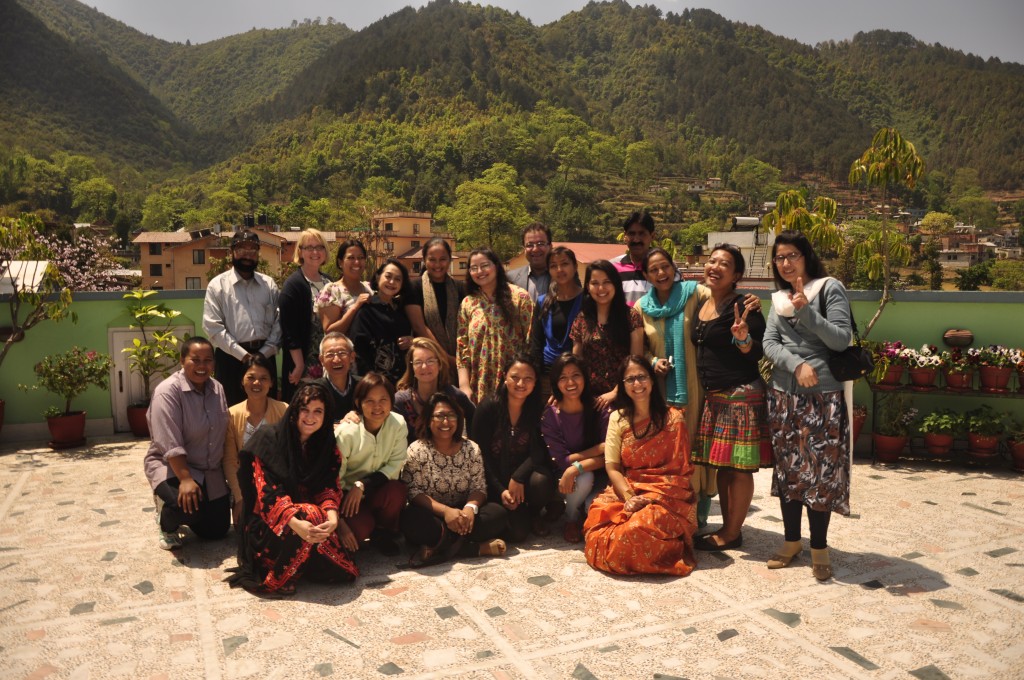More Power To Women: Misoprostol Hotlines
ASAP, Women on Web, and SAAF Grantee Aware Girls are holding a workshop to document and evaluate the misoprostol hotlines operating in Bangladesh, Indonesia, Pakistan and Thailand. The hotlines are runs by Women’s Health Foundation and Samsara (Indonesia), Aware Girls, Peace Foundation, National Welfare Organization (Pakistan), Tamtang (Thailand) and Community Life (Bangladesh). Coordinators and Counsellors from all these hotlines joined the workshop held in Kathmandu, Nepal between April 15 and 17, 2014.
The misoprostol hotlines provide information on how to use misoprostol effectively to perform safe medical abortion. In countries where women are burdened by their status in the society, patriarchal norms as well as by restrictive abortion laws and social stigma, these hotlines empower women allowing them to take their fertility into their own hands.
On the first day, participants shared some amazing success stories and challenges from the ground, and also gave us an excellent insight into how the hotlines work to subvert very restrictive laws in the country. It was also a great opportunity for them to compare their experiences and learn from each other’s unique situations. While counsellors in Pakistan are forced to work clandestinely, organizations in Bangladesh and Indonesia are able to operate more openly. While Thailand has a more liberal law than the other countries, stigma makes it just as hard to provide abortion as in countries like Indonesia or Pakistan. It was also inspiring to note that in certain areas in Pakistan, counsellors work in spite of facing hostility in their own communities as well as threats from religious and militant groups.
In the evening, mid-level providers, doctors and members from Ipas Nepal joined the team to hear more about the misoprostol hotlines and their use. Dr. Indira Basnett, who was a Steering Committee Member for ASAP until 2012, introduced these hotlines to the audience. Marlies Schellekens gave a brief overview of Women on Web, while Dr. Shilpa Shroff spoke about ASAP.
Two of ASAP’s youth champions, Shreejana Bhajracharya and Smriti Thapa spoke about the challenges of providing safe abortion in Nepal, where in spite of the liberal law, access is complicated by stigma, a shortage of providers and an extremely rough terrain.They talked about the possibility of using hotlines to reach women living in mountainous regions.
On the second day, participants met with Dr. Sumnina Tuladar who will work with them over the coming month to evaluate the value of these hotlines. After a two-hour meeting with her, the team went on a tour of the Bhaktapur hospital, where they had an opportunity to observe trained mid-level providers provide counseling as well as information about the use of mifepristone and misoprostol to young women seeking abortion. The team also have the opportunity to interact with the medical team and talk about MVA, a surgical method of safe abortion. The medical staff asked questions about the use of hotlines in Pakistan, Indonesia, Bangladesh and Thailand, and spoke about how these hotlines might be useful in remote areas in Nepal to provide accurate information.
Dr. SP Choong, ASAP Steering Committee member spoke briefly about the role of doctors in providing abortion and their moral and professional obligation. King Jelinska, who was instrumental in providing technical support to these hotlines discussed the challenges of running these hotlines. Counsellors spoke about the difficulties in explaining the process to women, and the team brainstormed ways of making the message simpler and easier to understand. The team took a short break and explored the ancient city of Bhaktapur before retiring for the day.
On Day 3, the team shared intimate stories, their personal challenges and their fears working with an issue that is largely stigmatized. Then Inna Hudaya of Samsara shared her views on documenting the calls that are received on the hotlines, and Kinga worked with each team to discuss strategies that they could incorporate into their work.
The workshop threw light on plenty of stories that this blog will cover in the upcoming days. But if I could leave you with one thought: Supecha Baotip, the coordinator of Tamtang, the hotline in Thailand made an excellent opening statement when she was sharing her work on Day 1: “Abortion is not about giving a few vulnerable women what they want. It is about all of us, all women. That is why these hotlines are important.” More information on each hotline coming soon!

















